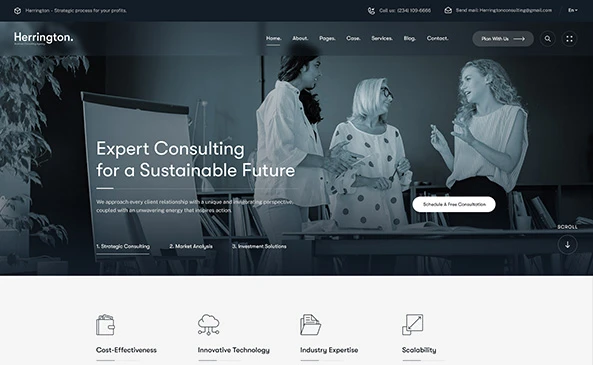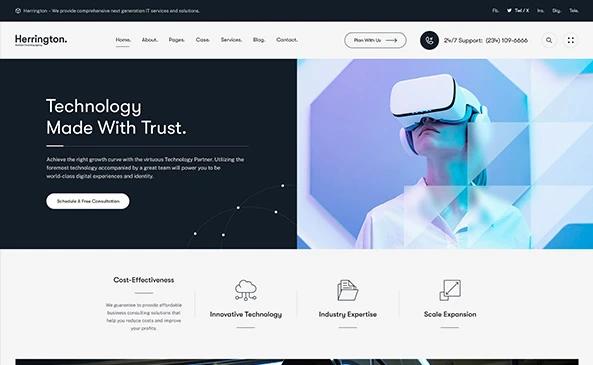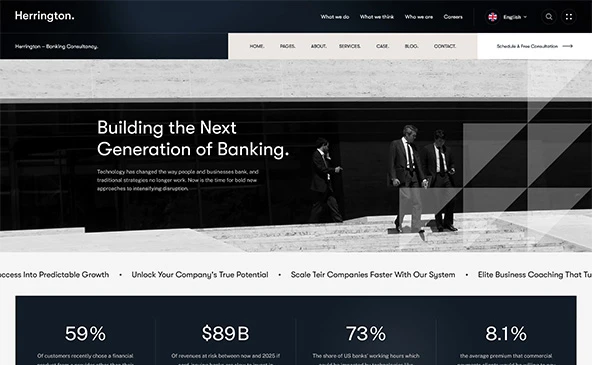In today’s fast-paced digital economy, the line between IT and business is no longer distinct—it has dissolved entirely. Technology has evolved from a supportive operational layer into the very core of strategic decision-making, shaping how organizations innovate, compete, and grow. Every business, regardless of industry, now operates as a technology business in some capacity. From automation and data analytics to artificial intelligence and cybersecurity, technology defines how value is created, how customers are engaged, and how markets are transformed.
For forward-thinking organizations, the fusion of IT and business is not simply about adopting new tools—it’s about reimagining the way they operate. True transformation happens when technology becomes a seamless extension of corporate vision, enabling agility, intelligence, and precision across every department. This alignment empowers leadership to make faster, smarter decisions, enhances operational efficiency, and creates resilient systems capable of adapting to continuous disruption. When IT and business strategy move in harmony, organizations unlock a new level of synergy. The result is not only improved productivity but also a culture of innovation that thrives on data, collaboration, and intelligent automation. Businesses that recognize this convergence as an ongoing evolution—not a one-time initiative—are the ones setting the standards for the future of digital enterprise.

The Convergence of Technology and Strategy
The most successful companies understand that IT is not a supporting function but a strategic asset. From automation and analytics to cybersecurity and AI integration, IT capabilities now shape how businesses create value and deliver experiences. Aligning technology initiatives with business goals ensures that every innovation serves a purpose: to improve efficiency, reduce costs, or open new revenue streams. This convergence forms the foundation for a resilient and forward-thinking organization.
1. Digital Transformation as a Core Strategy
Digital transformation is more than adopting new software—it’s about reshaping how an organization operates. Integrating cloud solutions, modern infrastructure, and agile workflows enables faster innovation and better scalability. Businesses that view digital transformation as an ongoing evolution, rather than a one-time project, unlock continuous improvement and adaptability. This shift also empowers teams to respond to market changes with precision and speed.
2. Data-Driven Decision Making
Data has become the lifeblood of modern business strategy. With the right analytics tools and governance frameworks, organizations can extract meaningful insights from data to guide strategic decisions. Real-time analytics enhance forecasting, reveal customer behavior patterns, and help identify inefficiencies that would otherwise go unnoticed. The integration of business intelligence tools allows IT to serve as a bridge between raw information and actionable outcomes, driving smarter, evidence-based decisions across departments.
3. Building Strong IT-Business Partnerships
Collaboration between IT and business units is a critical element of success. Effective communication ensures that technical initiatives align with business priorities and that innovation is driven by real organizational needs. Establishing cross-functional teams, regular strategy sessions, and shared performance metrics fosters transparency and accountability. This partnership transforms IT from a service provider into a strategic enabler that empowers business leaders to achieve measurable impact.
4. Embracing Automation and Artificial Intelligence
Automation and AI continue to revolutionize how organizations operate. Automating routine tasks allows employees to focus on higher-value activities such as innovation, problem-solving, and customer engagement. AI-driven tools can also enhance operational efficiency through predictive analytics, process optimization, and intelligent resource allocation. Embracing these technologies accelerates productivity, reduces costs, and improves the overall agility of the enterprise.
5. Cybersecurity as a Business Enabler
Cybersecurity is no longer just a technical concern—it’s a core business requirement. A secure digital environment builds trust with customers, protects intellectual property, and ensures compliance with regulatory standards. Modern cybersecurity strategies, supported by AI threat detection and continuous monitoring, safeguard both data and reputation. Businesses that integrate security into their overall strategy not only mitigate risks but also position themselves as trustworthy and forward-looking partners in a digital world.
Technology and business are no longer separate conversations. The organizations that align them effectively are the ones redefining industries.
Satya Nadella, CEO of Microsoft – Quote
In the modern business landscape, technology doesn’t merely support growth—it dictates it. Organizations that embed digital strategy into their core operations experience exponential advantages in scalability, communication, and innovation. At NBR. Company, our consulting framework emphasizes the fusion of business logic with technological architecture, ensuring that systems are not only efficient but adaptive, intelligent, and secure.
The Measurable Impact of IT-Business Alignment
When businesses align their technological and operational goals, the results are tangible. Process automation can reduce operational costs by up to 40%, while data-driven decision-making increases forecast accuracy and resource allocation efficiency. But beyond numbers, the most significant transformation occurs in culture. Teams begin to collaborate seamlessly, silos dissolve, and departments evolve into integrated, responsive networks that learn and optimize in real time.


IT is no longer about maintaining systems—it’s about creating ecosystems. These ecosystems connect departments, clients, and data flows in a way that enhances performance and foresight. The companies leading global industries today—those defining innovation in finance, logistics, and manufacturing—are those that treat their IT departments not as cost centers but as growth engines.
Business consulting in the digital era is not a static advisory service; it’s a collaborative evolution. Through strategic IT integration, data analytics, and process optimization, consulting transforms how enterprises operate and deliver value. At NBR. Company, this means re-engineering business frameworks for scalability and security—architecting not just solutions, but systems that anticipate the future.



















